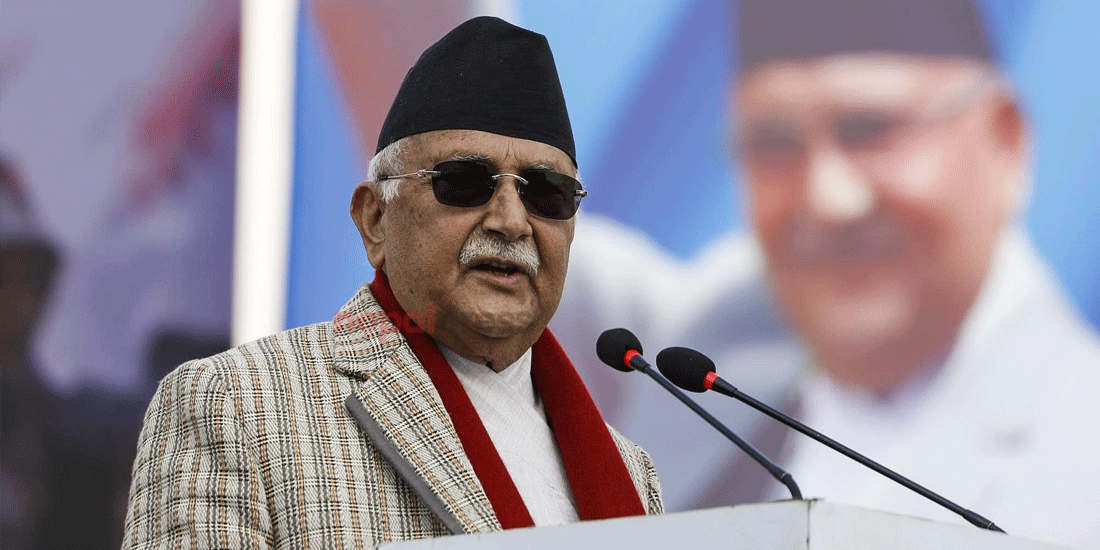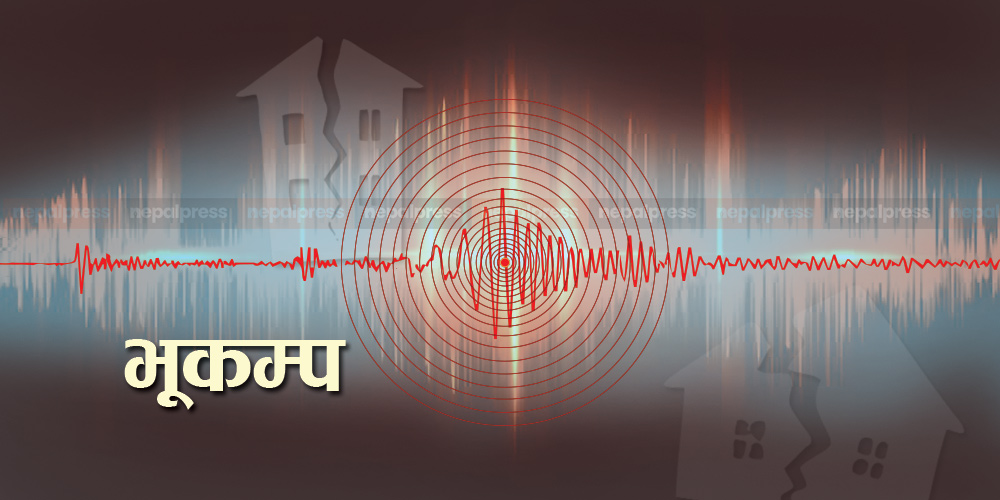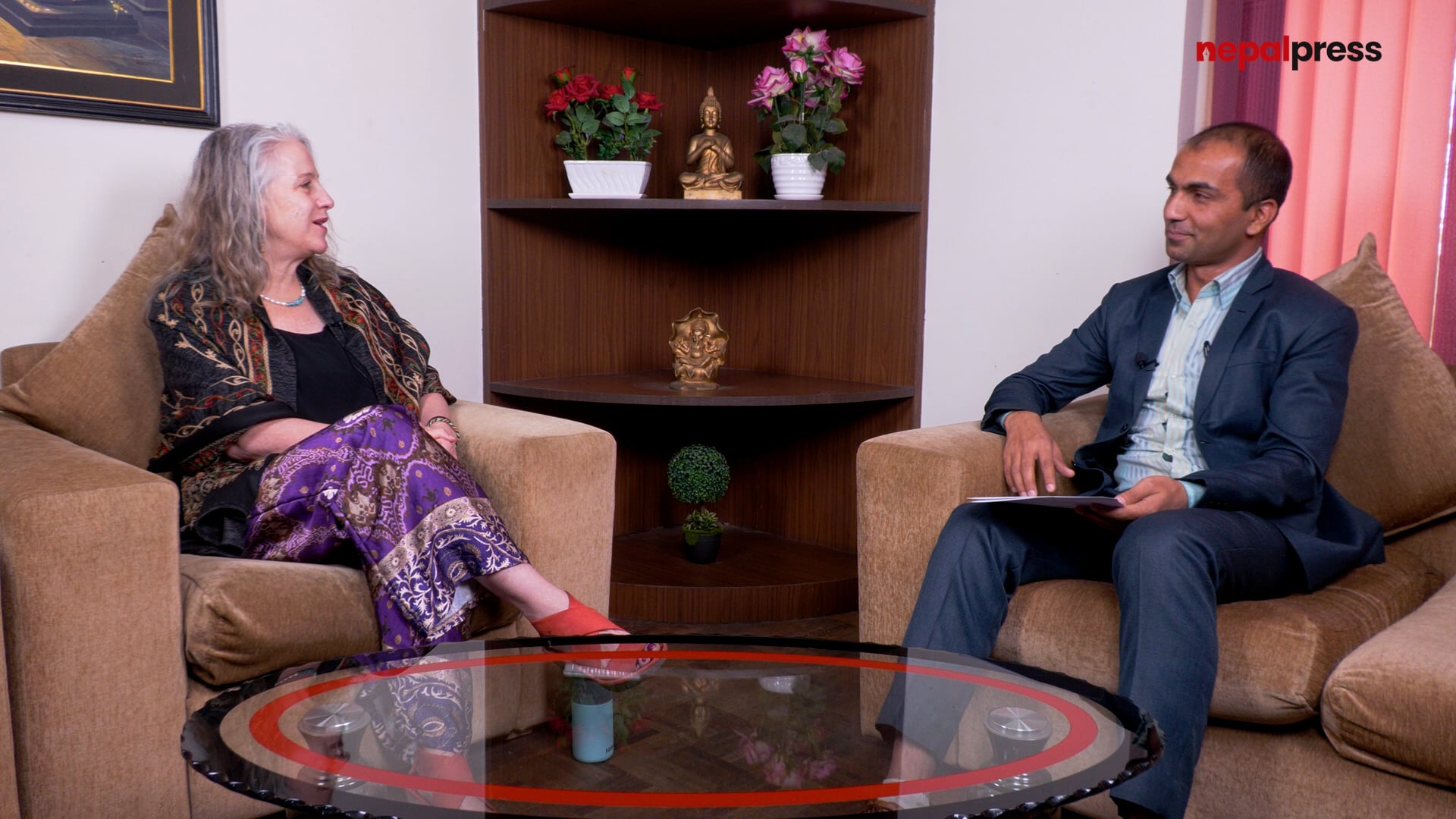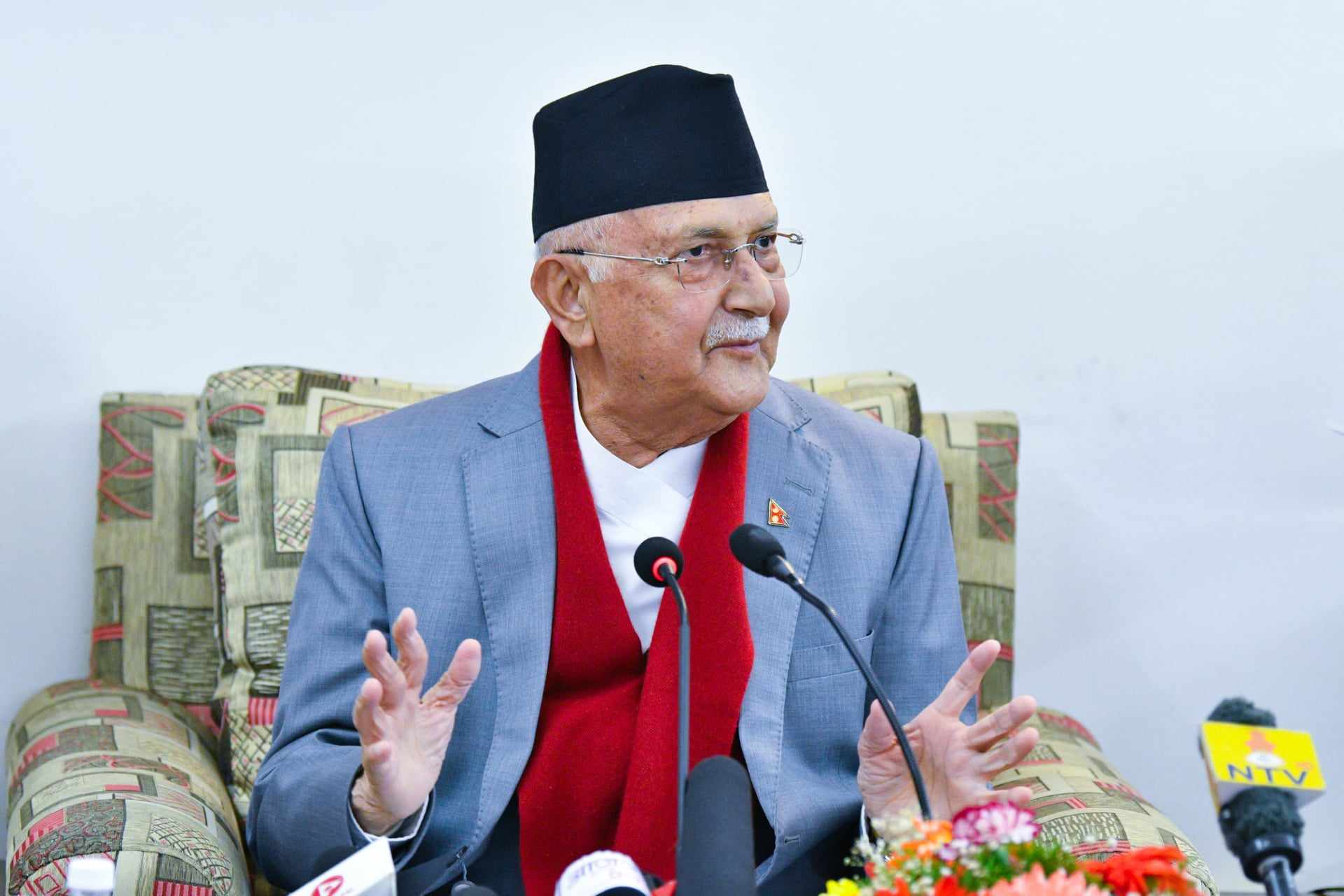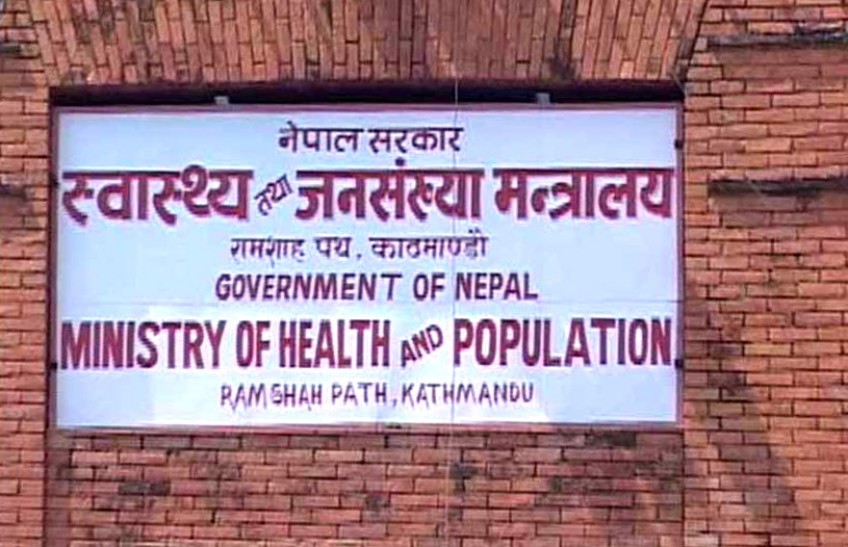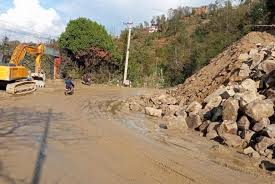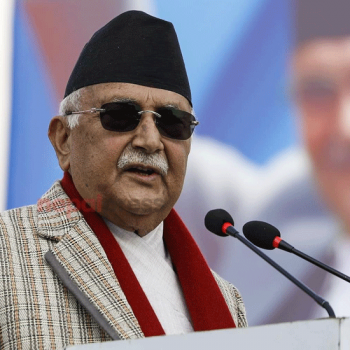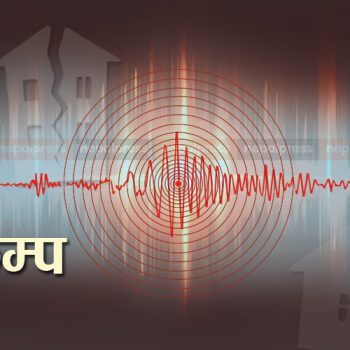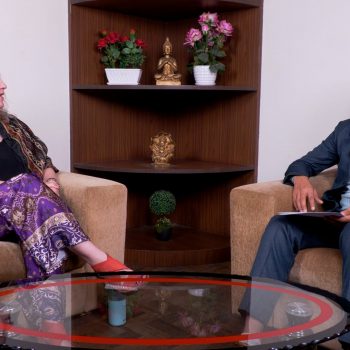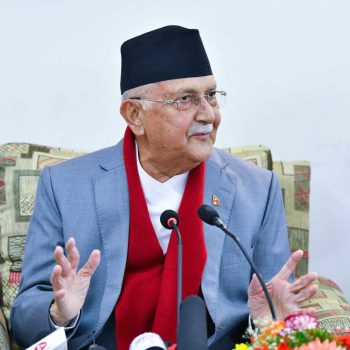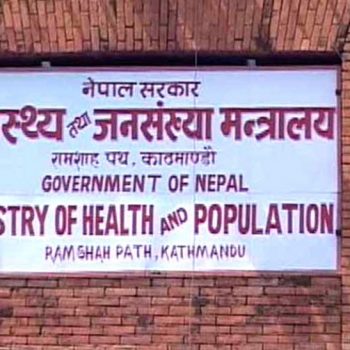Earthquake victims living difficult life under tarpaulin sheets
 NepalPress
NepalPress
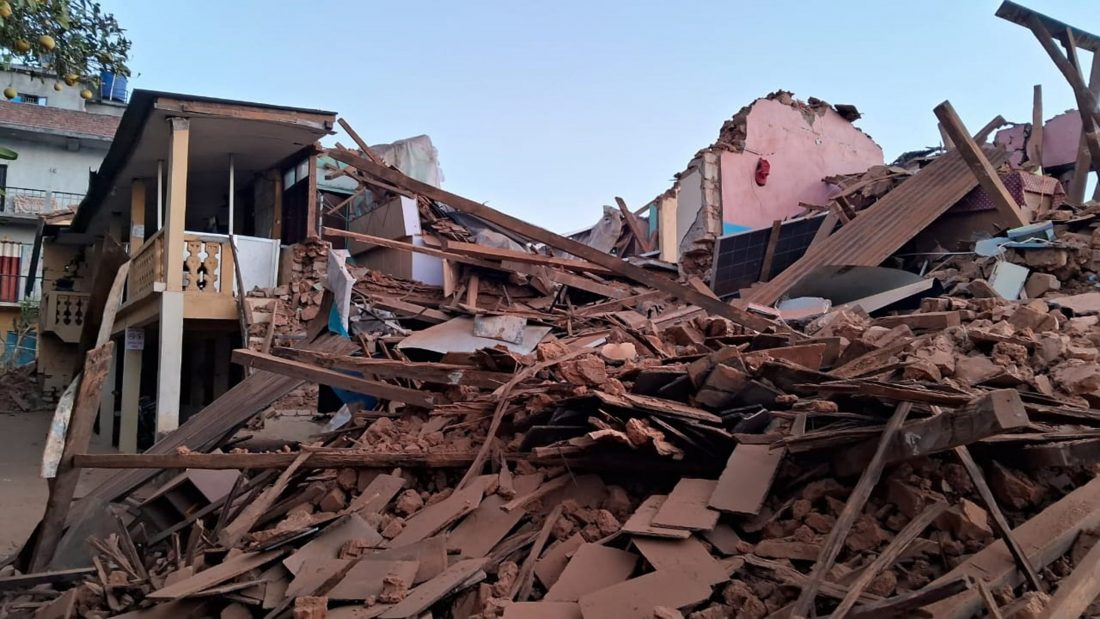
JAJARKOT: The road through the Jajarkot district headquarters is dotted with green tarpaulin tents. These makeshift tents put up by the Armed Police Force (APF) Nepal have been providing shelter to the locals who are living under the open sky after their houses were damaged by the earthquake on November 3.
The Armed Police Force has managed the tarpaulin sheet tents to protect from the cold the people who have been displaced after most of the mud-and-stone masonry traditional houses collapsed due to the 6.4 magnitude tremor.
The APF has also made arrangements for tents in the premises of Tribhuvan Secondary School as well as part of its campaign to provide temporary shelter in the aftermath of the devastating earthquake.
People cannot stay inside their houses due to the frequent aftershocks. The earthquake survivors are living under the canopy of the tarpaulin sheets in the school grounds.
Pradip Khadka of Bheri Municipality-2 said he felt safe living under the tent built in the school premises.
The APF Nepal team has reached various wards of the municipality to facilitate the relief distribution. The APF personnel are helping with the distribution of relief materials, counseling the earthquake survivors and lending hands in setting up tents for them.
A squad of the APF is helping in the distribution of relief at Rija of Nalgad Municipality-2. It has also been providing counseling to the distressed people in the wake of the disaster.
All the government bodies have not been able to pay much attention to the distribution of relief and rehabilitation of the earthquake survivors in outlying areas from the district headquarters. The locals lack adequate information and knowledge to stay safe from the quake even as frequent aftershocks have been occurring here.
The quake victims are facing much inconvenience even living under the tarpaulin cover as roof as the local level has not been able to manage blankets and bedding in required numbers. Ganesh Thapa of Bheri Municipality-3 complained that he has not received warm clothes.
Relief materials have not yet reached most of the remote places outside the district headquarters. Problems have been faced as the relief is being distributed haphazardly without preparing the criteria. It is said a problem has arisen in the distribution of relief as the representatives of various organizations who have reached the villages have been distributing relief materials as per their convenience.
Meanwhile, relief reached Barekot Rural Municipality on Monday only, two days after the earthquake. Rural Municipality Chair Bir Bahadur Giri said the people in the rural municipality have been living under the open sky and protecting them from cold is the major challenge.
13 injured in major aftershock
Thirteen people have been injured in Jajarkot and Rukum West due to the aftershock that struck the area on Monday. The epicenter of the aftershock measuring 5.8 on the Richter scale was Ramidanda. The epicenter of the November 3 earthquake was also located at Ramidanda.
Two people were injured in Jajarkot and 11 in Rukum West due to the aftershock that occurred at 4.30 pm on Monday, Chief District Officer of Jajarkot, Suresh Sunar said.
Almost half of those killed in quake are children
Meanwhile, almost half of those killed in the earthquake on Friday were children, it has been found. According to data with the police, 78 of the 157 people killed in the quake on the night of November 3 were children. Of the deceased children, 50 died in Jajarkot and 28 in Rukum West due to the quake, said Deputy Superintendent of Police Santosh Roka.
Twenty eight of 52 people who died in the quake in Rukum West were children, said the district police chief Namraj Bhattarai. “Most of the deceased in Rukum West were children. Two 10-month-old children have also lost their lives,” he said.
According to the Jajarkot police, of the 105 deceased in Jajarkot, 50 were children, 33 women and 18 men. In Rukum West, 16 women and eight men died in the quake.


